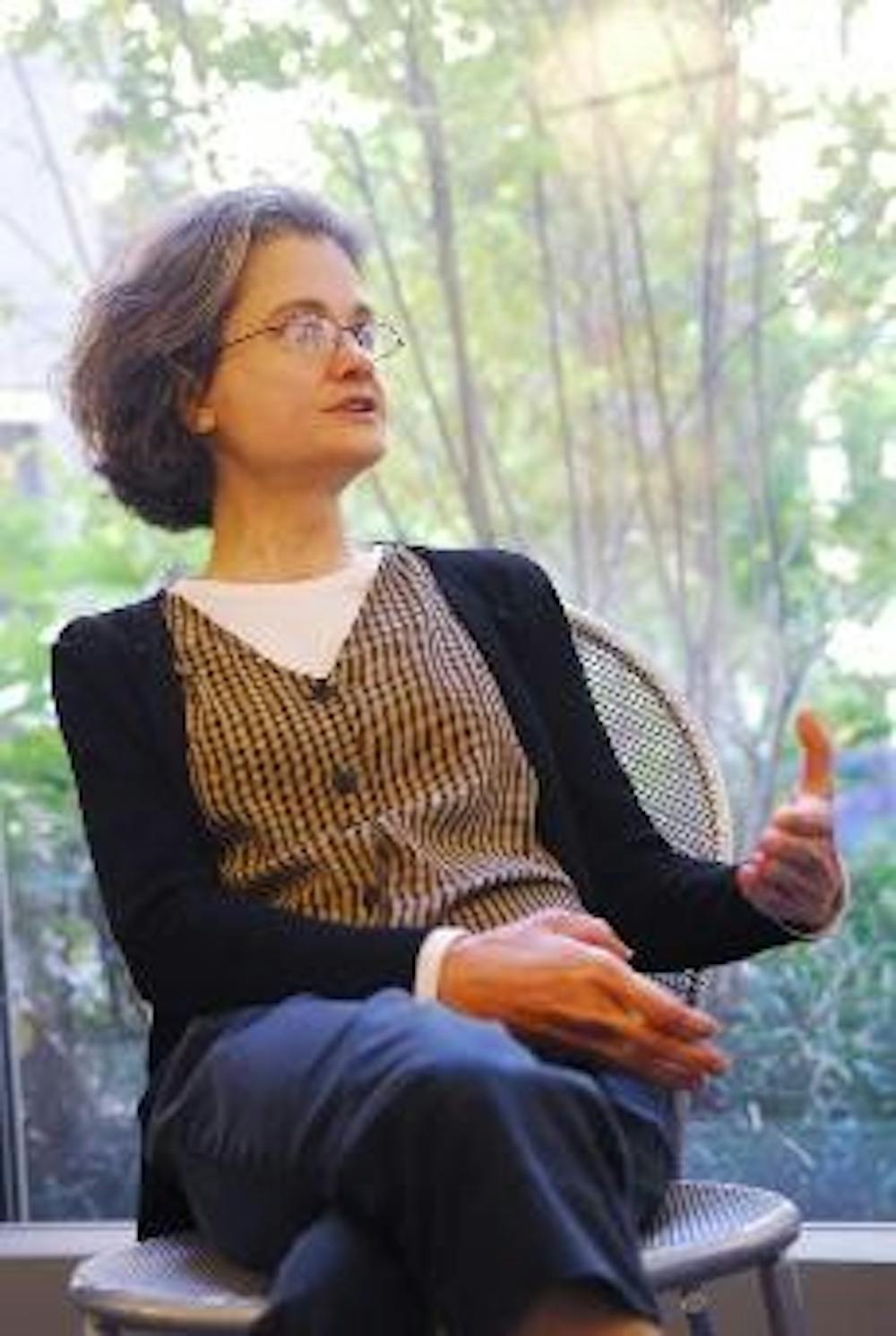
The School of Nursing is Penn's smallest undergraduate school, but it's looking to get a whole lot bigger.
As the nation tries to cope with a projected shortage of 800,000 nurses by the year 2020, Nursing School administrators prepare for a different type of shortage - a lack of research space.
And they are looking eastward, to a new plot of land the University will acquire next year, as they contemplate exactly how they will address it.
A space-planning survey completed last year showed that the Nursing School's current building will not be able to accommodate the school's ambitious goals, particularly for facilitating faculty research, according to Pat Burke, director of Finance and Administration for the Nursing School.
"Looking at our space as we presently use it and looking at it five years from now, there is a potential deficit of 52,000 square feet of space," Burke said.
According to Burke, this space shortage was estimated after the Space Planning Committee surveyed the needs of Nursing School students, faculty and staff.
"I was surprised to find out that our needs outstrip our current building," Nursing School Dean Afaf Meleis said.
To meet her goals, the current building would need three extra stories, "which, from the engineering aspect, is not possible for the Nursing Education Building," Meleis said.
Instead, an effort has been made to "maximize our existing space, since the building was not well-utilized architecturally," she said.
Renovations have already transformed the building's entrance, lobby and mezzanine areas. This year, the Nursing School plans to increase office spaces on the third and fourth floors.
But even with these renovations, the school still faces a lack of research space.
"We have one research lab, and we're looking to add another, but that would be very expensive, and the current space is not well suited for it," Burke said. "Eventually, we'll need to look outside the building for space."
Fortunately, the postal lands - 24 acres east of campus that the University will acquire next year - offers a possible solution to the lack of space, as well as an opportunity to better integrate Nursing programs with other disciplines, officials said.
"We have really been challenged to maximize our space, but it has also let us think creatively about how we can integrate out and mingle with the rest of the school," said Wylie Thomas, the Nursing School's assistant dean for Development and Alumni Relations. "There's already a lot of intellectual collaboration going on all over campus. It would be nice to see this appropriately brought together in some physical way, possibly in the east campus."
The campaign for better research facilities "hopes to provide more scholarship, with the needs of students but also faculty in mind," Meleis said.
The lack of qualified faculty is a problem nursing schools across the country face, and one of many reasons for the nation-wide shortage of nurses, according to Nursing professor Julie Sochalski.
"Ph.D. programs are not putting out enough faculty because there is not enough financial support as there is in undergraduate and masters programs," she added.
But the school is looking to attract new Ph.D. candidates using top-notch facilities that they hope might be in the works as the postal lands are developed.
"Penn is working to prepare the next generation of nursing faculty by encouraging advanced education, and has designed programs to get students from a [bachelor of science in nursing degree] to a Ph.D. at an earlier age," Nursing professor Eileen Lake said.
The Daily Pennsylvanian is an independent, student-run newspaper. Please consider making a donation to support the coverage that shapes the University. Your generosity ensures a future of strong journalism at Penn.
DonatePlease note All comments are eligible for publication in The Daily Pennsylvanian.





